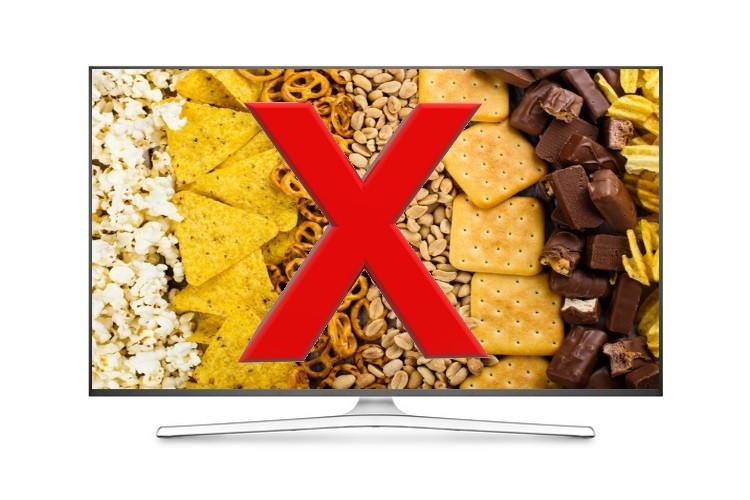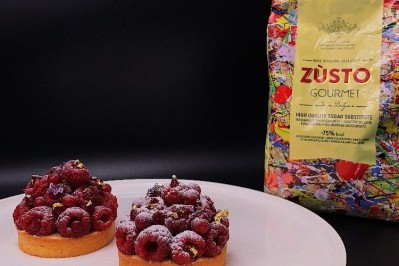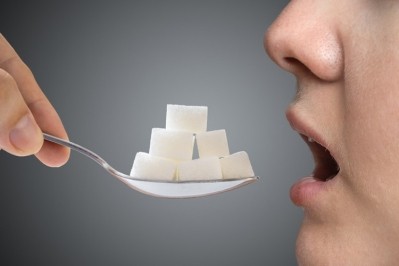£500m at risk if promotion ban on HFSS bakery and snacks goes ahead

The UK government’s proposed ban on HFSS products will have a shuddering impact on the food and drink industry as a whole, with IRI’s analysis of retail sales data putting just over £3bn in value sales at risk.
IRI’s study assumes the threshold at which the restrictions are introduced sits somewhere in the ‘amber bracket’, which would affect products containing 10g> of sugar, 1g> of salt, 2g> of saturated fat and 10g> of total fat per 100ml.
This means that all biscuits, cakes, chocolates and confectionery – even low sugar and low fat varieties – along with a swath of salty snacks will be affected, all of which typically generate between 8%-25% volume over a period of a year from off-shelf promotional displays, said IRI.
The government’s call to restrict advertising and promotion of HFSS foods is part of its campaign announced in July to tackle the country’s rising obesity rate.
According to Public Health England (PHE), 63% of the nation’s adults are above a healthy weight, with more than half classed as obese. One in three primary school aged kids are already overweight, with one in five living with obesity.
This puts them in jeopardy of developing cardiovascular disease, type 2 diabetes, at least 12 kinds of cancer, liver and respiratory disease, as well as impacting their mental health. In the current world dominated by the coronavirus, it also puts additional strain on the country’s health system, following evidence that people with a higher Body Mass Index (BMI) are at a greater risk of dying from COVID-19.
Ability to get share of shelf
If promulgated, the plan is to end promotions of (HFSS) foods on TV before 9pm, limit ‘buy one, get one free’ offers and remove these foods in prominent instore locations, such as gondola ends, front-of-store and standalone in-aisle promotions. The government also avows to introduce a total HFSS advertising restriction online.
“IRI’s data clearly outlines the economic impact the proposed restrictions would have on food and drink companies,” said Tim Rycroft, chief operating officer of Food & Drink Federation (FDF).
“The nation is in the grip of the deepest recession on record, with much of the hospitality industry on its knees.
“Now the Government proposes to increase costs, not only for manufacturers and retailers, but also for shoppers and consumers. If price promotions are banned, already hard-pressed shoppers can expect to see their weekly shop become more expensive, to the tune of £600 per year, per family on average.
“The proposals will mean that healthier choices will fall foul of the government’s illogical rules on promotions. They will also restrict challenger brands’ ability to get ‘share of shelf’ against established brands without promotions to raise their profile, leading to less choice for shoppers.”
SNACMA's stance
The UK’s Snack, Nut and Crisp Manufacturers’ Association (SNACMA) also believes no further restrictions should be implemented on TV or online or any other broadcast media.
A recent survey by Snowshock found that snacks again confirmed their place as one of the UK’s most searched foods.
According to the UK provider of slush machines, ingredients and consumables, the category has experienced a steady rise in searches, but no dramatic spikes, apart from May 2020 with 214,500 searches, thanks to lockdown, which sent people scurrying for solace.
Crisps increased from 12,100 searches in April 2017 to 60,500 in April 2020. Nachos, in particular, increased from 18,100 to 49,500 searches over the same period, while American-style beef jerky rose from just 5,400 searches in December 2016 to 14,800 in June 2020.
“The UK Advertising Codes has always required that food advertising meets baseline standards of responsibility. The current requirements specify that adverts must not condone poor nutritional habits or an unhealthy lifestyle in children. They cannot encourage pester power nor appeal to emotions such as pity, fear or self-confidence; and they cannot give a misleading impression of the nutritional or health benefit of the product as a whole,” said Andrew Curtis, director general of the Potato Processors’ Association (PPA), which incorporates SNACMA and the Frozen and Chilled Potato Processors’ Association (FCPPA).
He added current UK rules are amongst the most comprehensive in the world, and since 2005 – when Ofcom advertising restrictions were introduced – children’s exposure to HFSS advertising on TV has fallen by around 70%.
"The combined impact of [government’s promotion] proposals represents significant costs that manufacturers may not be able to absorb and which would likely be passed on to consumers. For some smaller businesses, the cumulative costs could be so significant that they will simply not be able to continue to trade.
“All businesses require certainty to enable them to plan for future investment and developments. However, we are very concerned that the combined number of issues we are being presented with, and the speed at which consultations and proposals are being issued, does nothing to secure confidence or provide the certainty that is required for businesses to be able to operate effectively.”
Curtis said it is important to note that the crisps and savoury snack sector has made significant strides in reformulation, slashing salt content in their products by approximately half. It has also reduced saturated fat content by 70% as a result of switching oils.
20% sugar reduction progress
However, the recent update from PHE on its sugar 20% reduction ambition – which noted a slight 3% reduction in total sugar per 100g in branded goods sold between 2015 and 2019 – could go a long way to further compel government’s proposed restrictions.
While some categories showed larger reductions – 13.3% decrease in breakfast cereals and 4.8% in cakes – there has been a 16.3% increase in sales in higher sugar categories such as chocolate confectionery (which reported ‘hardly any change’ in total sugar per 100g), meaning more sugar is appearing in shopping baskets than was the case in 2015.
“The government has made it clear the HFSS guidelines are an important part of their campaign to encourage people to embrace a healthier lifestyle and to lose weight if they need to. While the FMCG industry is behind such initiatives, they also have to weigh up the costs to their business,” said Tom Hall, director of Analytics and Technology, IRI.
“Talking to both manufacturers and retailers, we can see that there is real concern about the impact of the ban. IRI is offering is detailed analysis of the retail sales data to help them create scenarios for individual product SKUs within individual retailers, which will help them to measure the impact on their business and take steps to mitigate it.”











